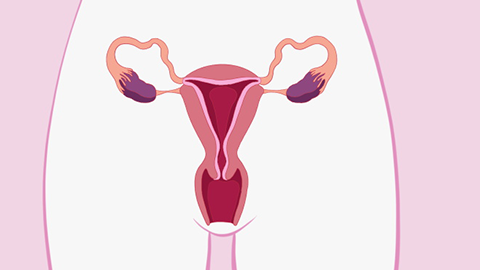How to Treat Cold Uterus (Coldness in the Uterus)
Generally, uterine coldness may be related to physical constitution differences, improper lifestyle habits, endocrine disorders, chronic pelvic inflammatory disease, polycystic ovary syndrome (PCOS), and other factors. Patients can alleviate symptoms through dietary adjustments, lifestyle improvements, and medical treatments. It is recommended that patients seek timely medical consultation and follow medical advice for treatment. Detailed explanations are as follows:

1. Physical Constitution Differences: Women with a constitution naturally inclined toward cold tend to have slower metabolic rates and less active blood circulation, leading to lower temperatures in the uterus and surrounding tissues, which results in uterine coldness. It is advisable to consume warming foods such as ginger, red dates, and longan in moderation, while avoiding excessive intake of cold foods.
2. Improper Lifestyle Habits: Poor lifestyle habits, such as frequent consumption of cold foods and wearing thin clothing, may also lead to uterine coldness. Lifestyle improvements are recommended, including avoiding raw and cold foods, dressing warmly, and ensuring adequate sleep.
3. Endocrine Disorders: Hormonal imbalances caused by endocrine disorders can affect the normal physiological condition of the uterus and surrounding tissues, leading to uterine coldness. This condition is often accompanied by irregular menstruation, mood swings, and skin problems. Patients should follow medical advice to take medications such as Modified Xiaoyao Pills, Qizhi Xiangfu Pills, and Wuji Baifeng Pills for treatment.
4. Chronic Pelvic Inflammatory Disease: Chronic pelvic inflammatory disease may cause uterine coldness, presenting symptoms such as lower abdominal pain and abnormal vaginal discharge. Patients should take medications such as Minocycline Hydrochloride Tablets, Amoxicillin and Clavulanate Potassium Tablets, and Ofloxacin Capsules as advised by a physician to aid recovery.
5. Polycystic Ovary Syndrome: PCOS is a common endocrine disorder characterized by elevated androgen levels, which can disrupt normal menstrual cycles and indirectly affect blood circulation in the uterus and surrounding tissues, causing uterine coldness. It may also be accompanied by irregular menstruation, dysmenorrhea, and pain during sexual intercourse. Patients are advised to take medications such as Dydrogesterone Tablets, Dexamethasone Tablets, and Cyproterone Acetate Tablets under medical supervision to alleviate symptoms.
In daily life, women experiencing uterine coldness should pay attention to keeping warm, especially in the waist and lower abdominal areas.





